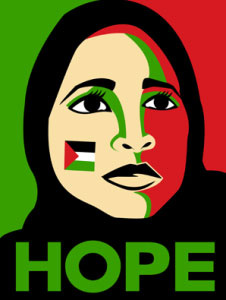Sovereign Palestinian State, Gift of the Globalized World

Globalization has changed our world, and this is not exclusive to the nature of political and international phenomena, rather, it also applies to their solutions. Ninety years ago, amid the collapse of the Ottoman Empire and the Palestinian nation’s statelessness, crises arose in the Holy Land and as time moved on they morphed into different appearances under the influence of the upheavals in the global order.
In times of a prevalence of an erratic, multipolar global order, several schemes—all unrealized— were proposed for this piece of land. With the inception of a bipolar global order after the Second World War –which led to the marginalization of traditional global powers such as Britain and the gradual rise of the United States- regional equations went under profound change: Zionism turned into a strategic ally of Washington and declared its existence as the state of Israel. Even the UK Ambassador to the United Nations cast a vote of abstention for the recognition of the new state, aware of a crisis that would run deep in the land of Palestine.
Israel has turned into the apple of the US’ eye since then, and the newly emerged superpower tied its national security and interests to the cornerstone of global security: the Middle East. Now it became time to narrate the saga in a befitting fashion: Civilized, oppressed Jews who had returned to their motherland after centuries of Diaspora versus ruthless Palestinian terrorists who were determined to stop them from reconstructing their civilization. However, it seems that with the ongoing transformation of the global order, the international community is changing its attitude toward Israel, and along with that it is changing the conventional narrative of Palestine.
Today, particularly after the 22-day war in Gaza and the crises rooted in the siege of this tiny strip of land, the wave of globalization has infiltrated the once impenetrable borders of the Holy Land, as it has dismantled the intellectual and political barriers protecting Israel. Tel Aviv, which has experienced its first military defeats in history just as the days of US dominance are numbered, is witnessing diplomatic pressure for the first time. Nowadays, an overwhelming majority of the international community, including Israel’s allies, is criticizing its radical policies and the continued construction of settlements in the Occupied Territories. Israel’s raids on Gaza and its atrocities are condemned not only by other countries, but also by UN officials and are recognized as war crimes.
The Gaza blockade is gradually loosened with the admirable endeavors of NGOs, governments and the media. More important, the civilized, oppressed image Israel had portrayed for itself has now given way to a homicidal regime that overlooks no option to create havoc. The transforming global image of Israel will pave the way for a change in its position within global arrangements.
Following the unfruitful direct talks between Mahmoud Abbas, head of the Palestinian Authority, and Israeli PM Benjamin Netanyahu, many analysts came to the belief that the formation of a sovereign Palestinian state, a global consensus for long, is now a matter of doubt. Sustained construction of settlements in lands supposed to be governed by the Palestinian state has actually rendered continuation of negotiations useless. Nevertheless, it seems that in the new global circumstances, recognition of states and global interactions can be represented in new modes. The independence of Kosovo was obstructed by Serbia for long, and appeared to be more of a chimera with support given to Belgrade by Moscow and its allies. A wave of Kosovo recognition launched by European countries, however, gave birth to the state of Kosovo and cornered the Serbs.
It seems that with a new version of the story of Palestine read by politicians, and the rise of a new wave of pro-Palestine campaigns, the Kosovo experience is mirrored. Regardless of the ultimate outcome of new developments, once again it is proven that in the new world, political channels are immune to obstruction. Israel, which had blocked all the effective interaction channels Palestinians could employ to present their own narrative, is now able neither to stop them nor to portray them in the vein it desires. The new wave for recognition of a sovereign Palestine is a new opening for the Palestinian nation in a globalized world.

